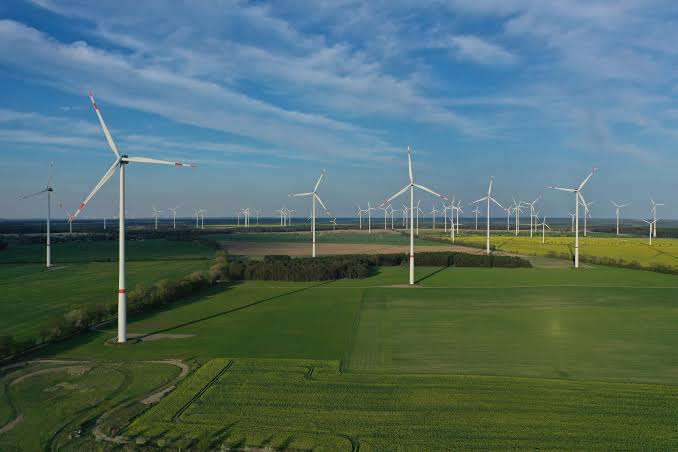Germany is increasing its support for renewable energy initiatives in Southern Africa, with new financial contributions aimed at fostering sustainable development in the region. The latest move includes a sizable loan to South Africa for its renewable energy transition and an investment into a green hydrogen project in Namibia.
South Africa, which relies heavily on coal for its electricity supply, has been facing power shortages and pressure to reduce its greenhouse gas emissions. In 2021, the country announced a Just Energy Transition Partnership (JETP) with several international donors, who pledged $8.5 billion to help South Africa phase out coal and shift to cleaner energy sources. The partnership also seeks to address the social and economic impacts of the energy transition, such as job losses and community development.
Germany, one of the main funders of the JETP, has agreed to lend South Africa R9 billion (approximately $540 million) to support its energy transition. The loan will be used to finance renewable energy projects, such as solar and wind farms, as well as energy efficiency measures and grid infrastructure. The loan will also help South Africa diversify its energy mix and reduce its dependence on coal, which accounts for more than 80% of its power generation.
In addition to the loan, Germany is also committing €10 million (about $10.4 million) to a pioneering green hydrogen initiative in Namibia. The project, spearheaded by BAM, is located in the Walvis Bay area and represents a strategic investment in clean energy technology, despite the political challenges that often accompany such transformative ventures.
Green hydrogen is produced by using renewable electricity to split water into hydrogen and oxygen. It can be used as a fuel for transport, industry and power generation, or as a feedstock for chemicals and fertilizers. It has the potential to reduce carbon emissions and create new economic opportunities, especially for countries with abundant renewable energy resources.
Namibia, which has one of the highest solar radiation levels in the world, is aiming to become a green hydrogen superpower in the coming decade. The country has launched its green hydrogen strategy at COP27 in Sharm El-Sheikh, which supports its commitment to the Paris Agreement on climate change. The strategy outlines a clear pathway to unlocking investments and to establishing Namibia as a regional and global decarbonization champion.
These investments by Germany demonstrate its commitment to assisting Southern African countries in their transition to a greener economy. They also reflect a growing international recognition of the importance of investing in sustainable energy solutions to combat climate change while supporting economic growth in developing regions.
Source: Investing.com



